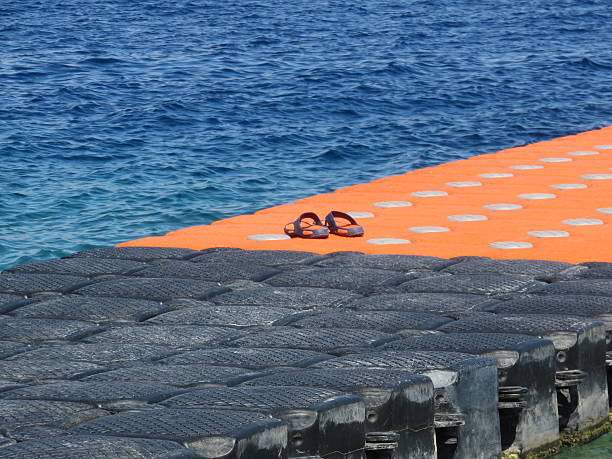When choosing between a floating dock and a floating jetty, the decision ultimately depends on the specific needs of your waterfront property and the type of watercraft or activities you plan to accommodate. Both structures offer unique benefits, but understanding their differences can help you make an informed choice. A floating dock is a versatile, movable platform typically used for docking boats, personal watercraft, and other small vessels. It is designed to float on water, rising and falling with the tide, which is particularly advantageous in areas with fluctuating water levels. Floating docks are often constructed with a series of modular sections that can be customized in length and width, making them ideal for various waterfronts, whether it is a private property, marina, or public access point. They are relatively easy to install and maintain, and they can be removed for seasonal storage if needed.

Floating docks are usually made from durable materials such as polyethylene or treated wood, ensuring longevity even in harsh water conditions. One of the primary advantages of floating docks is their flexibility. Since they are not fixed to the shoreline, they can be adjusted or reconfigured based on your needs. This makes them a great option for those with small boats or recreational watercraft. They provide a stable platform for boarding, unloading, and performing maintenance on your boat, which is important for both safety and convenience. Additionally, hiseadock are often equipped with features like handrails, ladders, and cleats, which enhance usability. On the other hand, a floating jetty is designed for a more specialized use, typically serving as a mooring or access point to a larger boat or vessel. Unlike the floating dock, a jetty usually has a narrower, elongated design, resembling a pier that stretches out into the water. Floating jetties are often used in areas where boats need to be moored along the edge of the structure, or where walkways are necessary to provide access to vessels moored further offshore.
While floating jetties can be used for smaller boats, they are more suited for providing access to larger ships or even as a scenic point for enjoying the waterfront. The key advantage of a floating jetty lies in its stability. While floating dock can shift with the tides, floating jetties are usually designed to offer greater security for large vessels, especially in busy or rough water conditions. They are often constructed to withstand higher traffic volumes, making them perfect for public harbors or commercial maritime facilities. Ultimately, the choice between a floating dock and a floating jetty depends on the primary function you need. If you are looking for a flexible, customizable option for small to medium boats and want the ability to modify the structure, a floating dock is your best bet. However, if you require a more stable, specialized platform for larger vessels or frequent access to deep water, a floating jetty might be the right choice for your waterfront needs.

